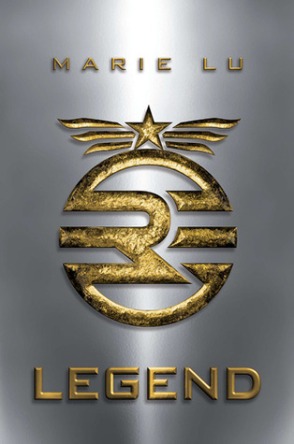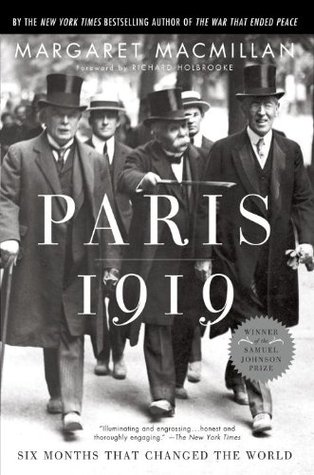Did I not say I was terrible at plans? Did I not say that? Anyway. We’re like a week into April, so I’m going to cheat a little bit. Here are the books I might/probably read:
Weapons of Math Destruction by Cathy O’Neil

A former Wall Street quant sounds an alarm on mathematical modeling—a pervasive new force in society that threatens to undermine democracy and widen inequality.
We live in the age of the algorithm. Increasingly, the decisions that affect our lives—where we go to school, whether we get a car loan, how much we pay for health insurance—are being made not by humans, but by mathematical models. In theory, this should lead to greater fairness: Everyone is judged according to the same rules, and bias is eliminated. But as Cathy O’Neil reveals in this shocking book, the opposite is true. The models being used today are opaque, unregulated, and uncontestable, even when they’re wrong. Most troubling, they reinforce discrimination
This popped up in my updates feed on GoodReads, so I added it to my want-to-read list, because I have no self-control. Given the increasing importance of technology and data in our lives, I felt understanding how algorithms can uphold and support an unfair system, despite the “It’s fair because it’s math!” justifications, incredibly important. I may or may not have already started it.
So you’ve been publicly shamed by Jon Ronson

A great renaissance of public shaming is sweeping our land. Justice has
been democratized. The silent majority are getting a voice, but what are we doing with
our voice? We are mercilessly finding people’s faults. We are defining the boundaries of normality by ruining the lives of those outside it. We are using shame as a form of social control.Simultaneously powerful and hilarious in the way only Jon Ronson can be, So You’ve Been Publicly Shamed is a deeply honest book about modern life, full of eye-opening truths about the escalating war on human flaws and the very scary part we all play in it.
I’m all about that pop-science this month, apparently!
I think all of us are a little bit terrified of being publicly shamed. Remember in high school when you were all like “I don’t want anyone seeing what I do on my computer! what if they discover llamas wearing hats. Everyone will think I’m too quirky!” Yeah, let’s be real, llamas wearing hats weren’t your first concern. Like your teacher/parent/librarian always said, “The internet is forever, kid.”
Legend by Marie Lu

What was once the western United States is now home to the Republic, a nation perpetually at war with its neighbors. Born into an elite family in one of the Republic’s wealthiest districts, fifteen-year-old June is a prodigy being groomed for success in the Republic’s highest military circles. Born into the slums, fifteen-year-old Day is the country’s most wanted criminal. But his motives may not be as malicious as they seem.
From very different worlds, June and Day have no reason to cross paths—until the day June’s brother, Metias, is murdered and Day becomes the prime suspect. Caught in the ultimate game of cat and mouse, Day is in a race for his family’s survival, while June seeks to avenge Metias’s death. But in a shocking turn of events, the two uncover the truth of what has really brought them together, and the sinister lengths their country will go to keep its secrets.
I may or may not be picking this up on the recommendation of Leigh Bardugo. Let’s hope I’m not tired of dystopia yet!
Peacemakers: The Paris Peace Conference of 1919 by Margaret MacMillan
For six months in 1919, after the end of “the war to end all wars,” the Big Three—President Woodrow Wilson, British prime minister David Lloyd George, and French premier Georges Clemenceau—met in Paris to shape a lasting peace. In this landmark work of narrative history, Margaret MacMillan gives a dramatic and intimate view of those fateful days, which saw new political entities—Iraq, Yugoslavia, and Palestine, among them—born out of the ruins of bankrupt empires, and the borders of the modern world redrawn.
Ah, history– equal parts fascinating and fury-inducing. I picked up the book after finishing An Unquiet American, a collection of writings by Richard Holbrooke. A diplomat and one of the founders of Foreign Policy magazine, Holbrooke mentioned the Paris Peace Conference several times, often lamenting the decisions of leaders at the time. To him, the doling out of rewards and punishments, and the drawing of lines during the conference still play a large role in conflict today. I did read most of this book when I first picked it up, but school became too hectic so I dropped it. I’d like to pick it up again this month. Margaret MacMillan is an excellent historian, as far as I’m concerned. I remember being impressed by the detail she included.
This is a huge tome, so let’s see if I can finish it.
Ancillary Justice by Annie Leckie

On a remote, icy planet, the soldier known as Breq is drawing closer to completing her quest. Once, she was the Justice of Toren – a colossal starship with an artificial intelligence linking thousands of soldiers in the service of the Radch, the empire that conquered the galaxy. Now, an act of treachery has ripped it all away, leaving her with one fragile human body, unanswered questions, and a burning desire for vengeance.
Ancillary Justice’s premise intrigued me. I loved the idea of a race which didn’t define gender. I think this more experimental side of writing (if you can call me that) drew me to the book more than anything else.
Something Fantasy because who do you think I am, anyway?
I cannot believe I haven’t found a specific fantasy book to read. I. cannot. believe. it. I always read fantasy! It is my favorite genre. Hold this space. Something will come.
But, if you have a few minutes, feel free to post a couple of fantasy books you really enjoyed below!